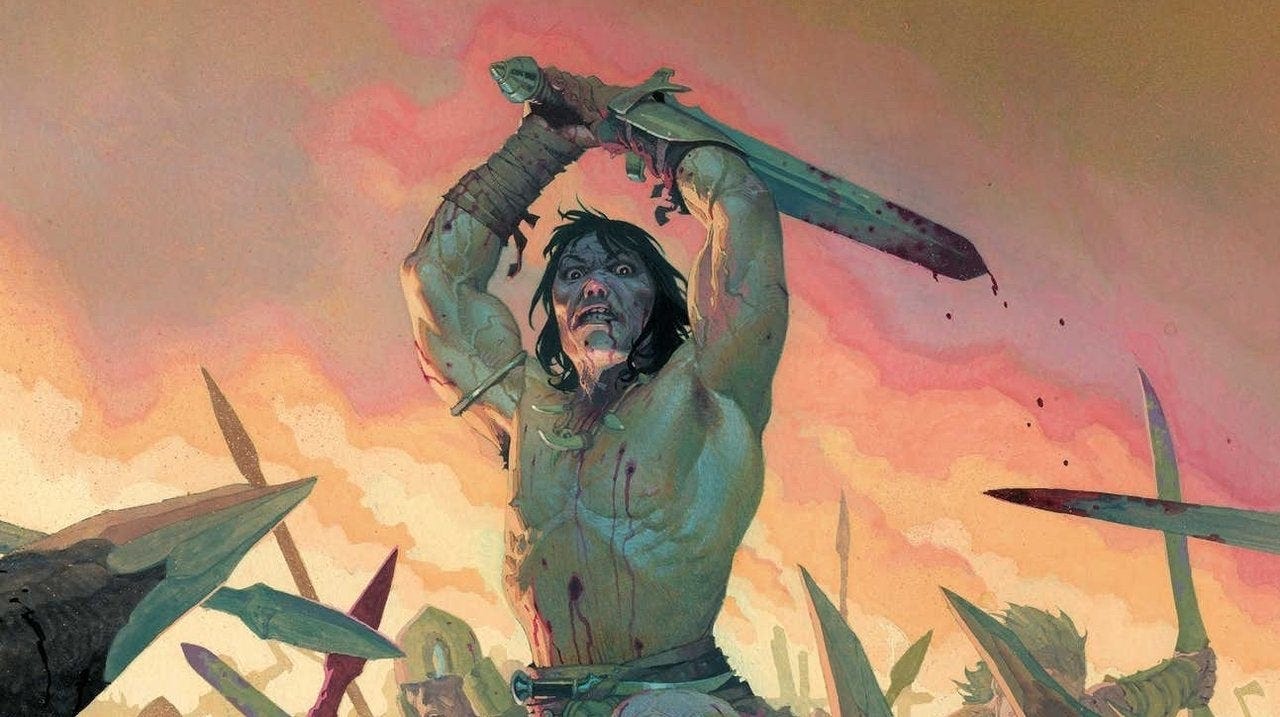David took his men with him and went out and killed two hundred Philistines and brought back their foreskins. They counted out the full number to the king so that David might become the king’s son-in-law. Then Saul gave him his daughter Michal in marriage. — Bible, 1 Samuel 18:27
A Man out of Time
In 1982 Arnold Schwarzenegger took up the role of Conan fo…
Keep reading with a 7-day free trial
Subscribe to Holy is He Who Wrestles to keep reading this post and get 7 days of free access to the full post archives.





